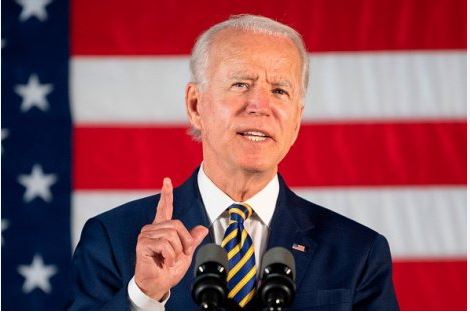Biden: US Committed to Helping Haiti Without Sending Troops

President Joe Biden has reaffirmed the United States’ commitment to aiding Haiti, emphasizing that the country is providing substantial support without deploying troops. In light of Haiti’s ongoing crises, including political instability and rampant gang violence, Biden highlighted various non-military measures being taken to assist the beleaguered nation.
Speaking at a recent press conference, President Biden addressed the multifaceted approach the U.S. is employing to support Haiti. “We are doing everything we can to help Haiti, but sending American troops is not the answer,” he stated. Instead, the U.S. is focusing on diplomatic, humanitarian, and logistical efforts to stabilize the country.
The U.S. has increased its humanitarian aid, providing essential resources such as food, medical supplies, and financial assistance to help Haiti manage its numerous challenges. This aid aims to alleviate the immediate suffering of the Haitian people and support efforts to rebuild infrastructure damaged by natural disasters and prolonged unrest.
In addition to direct aid, the U.S. is working closely with international partners and organizations to coordinate a comprehensive response. This includes support for the United Nations and other agencies operating on the ground in Haiti, ensuring that aid reaches those most in need efficiently and effectively.
President Biden also highlighted the importance of supporting Haiti’s government in establishing stability and addressing the root causes of the nation’s turmoil. The U.S. is providing technical assistance to help strengthen Haiti’s institutions, promote good governance, and enhance the rule of law. This includes efforts to combat corruption, improve security, and support democratic processes.
One key aspect of the U.S. strategy is to bolster Haiti’s security forces through training and resources, helping them to manage internal threats more effectively. This approach aims to empower Haiti to handle its security challenges independently, reducing the need for foreign military intervention.
Critics of the administration’s stance argue that more direct intervention might be necessary given the severity of the situation in Haiti. They point to the escalating violence and the lack of effective governance as indicators that stronger measures may be required. However, the Biden administration maintains that a military presence could exacerbate tensions and lead to further instability.
Haitian leaders and civil society groups have expressed mixed reactions to the U.S. approach. Some welcome the increased aid and support for institutional strengthening, while others feel that more decisive action is needed to address the immediate security concerns.
As Haiti continues to navigate its complex crises, the U.S. remains committed to providing substantial support without resorting to military intervention. President Biden’s strategy reflects a broader emphasis on sustainable, long-term solutions that address the underlying issues contributing to Haiti’s instability.
The situation in Haiti will require ongoing international attention and collaboration. The Biden administration’s efforts underscore the importance of a multifaceted approach, combining humanitarian aid, diplomatic engagement, and support for local governance to help Haiti achieve lasting stability and development.





